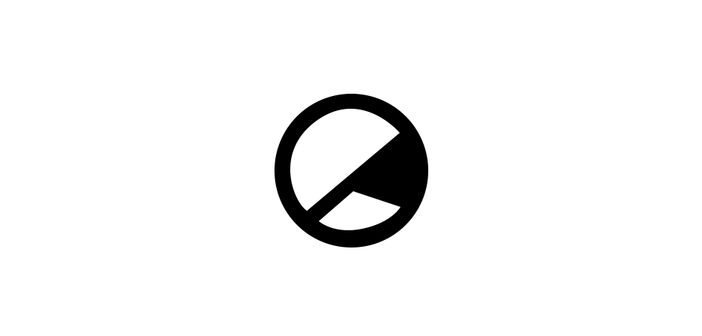Hyperactive and occasionally unsatisfying, yet also ambitious and thoughtful, and possessing some brilliant plotting and cinematic flourishes.
-
6
Prolific mystery writer Harlan Coben taps straight into potent themes of loss and regret in the very first sequence of The Five. A young boy abandoned by his teenage brother and his friends goes missing in a park near their home. Twenty years later, the brother runs through the same park, while we see two of those friends (one a detective, the other a social worker running a shelter) going about their day. As we’re flung between these three men – all shot in almost parodically over the top cinematic styles – the feeling that they have all been shaped by this act of neglect and the subsequent ruin, is utterly palpable.
20 years on from the disappearance of the young boy, Jesse, his DNA turns up at the murder of a woman. The detective in charge of the investigation, Danny (O.T. Fagbenle), was there when Jesse was last seen; along with the boy’s older brother Mark (Tom Cullen), his ex-girlfriend Pru Carew (Sarah Solemani), and their friend Slade (Lee Ingleby). The shock reappearance of Jesse’s DNA sparks a revitalised yet challenging friendship between the four, as secrets are unearthed, long-lost kidnapping victims conveniently reappear, and a larger conspiracy involving escorts and fraud emerges.
There’s something distinctly brash about The Five. The whole first episode has the look of a car commercial: there are sweeping wide shots executed at great speed, over impossibly pretty locations; tight close ups on faces, positioning actors’ faces closer towards the edge of the frame than is normally found in TV or film; and an almost hyperactive editing in what should be quieter scenes. It’s bold and lends to the pace, but it’s distracting, and early on this lack of control threatens to derail a delightfully pulpy, nuanced story.
Yet the lack of restraint almost works to the show’s overall benefit. This being a mystery about a missing boy, there’s only so much plot that can be involved before it becomes stretched out – even with the four (at least) principal characters. Yet those aforementioned close-ups prove essential to the overall tone: protagonist and antagonist alike facing out of frame, leaving large empty spaces behind them as if to hint at their secrets. The overall effect of this is a sense of unease and mistrust, rewarded often by character revelations to varying degrees of satisfaction. More importantly, it makes the series ultimately an exercise in misdirection, like many of the best noir and crime stories. Nearly all of the best moments, big or small, play with our expectations, which we’ve usually been led to develop by the show itself.
Those little thrills don’t last however, if the cast or the writing are not compelling, and the latter certainly suffers towards the end. Some character arcs prove dramatically unsatisfying; some characters’ pasts are constantly hinted to us, instead of being shown; some appear to have no arc, their impact on the audience ambiguous. However, Coben’s writing for the four principal characters is just about spot-on: all of them have their own baggage besides the loss of Jesse, and they’ve all chosen careers focused on justice and the welfare of others – solicitor Mark, for instance, takes the case of a missing father from a 14-year old boy. The acting is also almost entirely spot-on. Tom Cullen stands out as Mark, who feels both burdened, and yet convincingly optimistic. It’s his arc and story which provides the most satisfaction, having the clearest link to loss and grief over the past. O.T. Fagbenle as detective Danny probably has the most screen-time next to Cullen, and he matches him beat for beat for presence. They’re both charming and suffering under built-up stresses and life complications, and both possess strong convictions and a talent for conducting their investigations with less than official means.
Lee Ingleby’s Slade (who interestingly, has no last name, nor a defined past) manages to steal most scenes, and has a large burden of plot. It’s a plot which relies on that element of misdirection, as Ingleby plays on his mercurial presence and suspicious looks, while at the same time that he’s charismatically leading his friends. Pru is the weakest of the four. Sarah Solemani plays her well, as effortlessly likeable, with a charming and slightly goofy presence masking a past of mistakes. Yet as that past is alluded to, in dialogue rather than visuals, it becomes increasingly hard to buy. Solemani just doesn’t have anywhere near the presence of the fuck-up that’s constantly suggested. Around these four, the rest of the cast give solid, occasionally great (though occasionally hammy) performances.
The Five is at times over-stylised, and certainly too heavy on sub-plots. It’s too focused on what are genuinely brilliant misdirection exercises to make its themes of loss and redemption resonate. However, it’s also mercilessly well plotted, moving at an enticing pace from the word go. Packed with a few satisfying twists, it’s a rewarding watch. Intentionally or not, it also leaves you asking questions about the characters and their arcs, which make it a more lasting experience – if sometimes for the wrong reasons.
The Five is released on DVD, Blu-Ray, and Digital HD on 4th July 2016.



